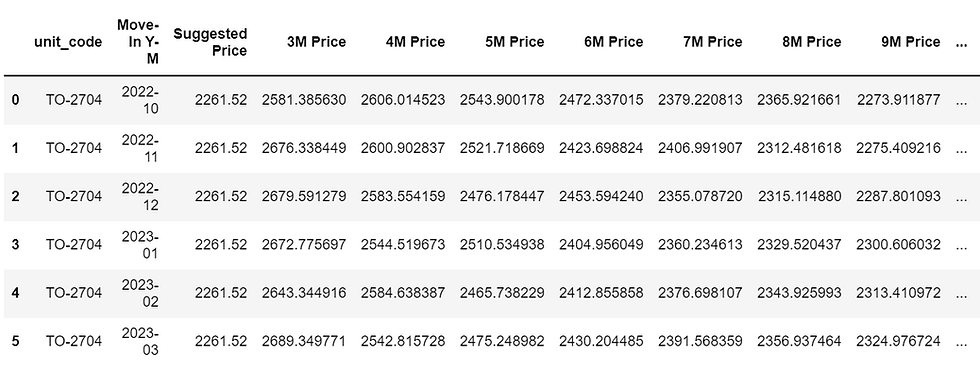Analytics in Your Own Life: Analytical Approaches to Measure, Learn and Improve Yourself
- Eric Huang
- Aug 14, 2020
- 4 min read
Updated: Aug 15, 2020
I just wanted to write a fun quick article on analytics - not within business but within my personal life. Warning: This might get a little nerdy!
Two quick hypotheses.
Hypothesis 1: Everyone has a lot going on in their lives
Hypothesis 2: Everyone has some desire to improve themselves
Analytics is all about decision-making. Every day, everyone makes hundreds if not thousands of decisions, big or small. Decisions can either be conscious (do I buy a latte or a cup of tea), or unconscious (should I eat breakfast).

It's no surprise we all want to make better decisions (as shown by the multi-million/billion dollar self-help industry).
Today, I want to introduce analytics as a means that has helped me become a better decision-maker because it helped me see that all the little decisions really add up over time!
I spend a lot of time trying to figure out the things that are most important to me and how well am I performing in them. Those two questions help me set goals and strategies on what I need to do with my time and energy.
I am not a philosopher or psychologist, but I am good with analytics and I’m intrigued about doing things the mathematically optimal way. Sure life isn’t an Excel sheet, but some parts of it can be distilled.
So, I thought I share a few things that I do or have heard of that has to do with analytics and life. Below are three simplified steps!
1) Measure what’s important to you:
People always talk about goals in the new year.
Well, what is the starting point?
Whether it is your diet, fitness, money, or time, there are a plethora of mobile/cloud/computer applications out there to help you track what’s important to you.
As a fun example, I track my time on an hourly basis every day. It’s not super accurate but it serves as a bit of a daily reminder for myself to be conscious of how I spend my most precious commodity.
There are probably lots of other creative things that you can do. I have heard of people that use a spreadsheet to track their most important relationships (friends and family), so they know if they’ve dedicated enough time every month to the people that matter most to them.
I even have a toothbrush that tracks my brush, mouthwash and floss time!
Now, I know it may sound a little strange and even callous to be tracking something like relationships, but when things get busy, it is very easy to lose track of time.
Sometimes you don’t even realize yourself. The core of tracking our time is to ensure that we never forget what’s most important to us.
Here’s some stuff I do:
Time tracking (Excel, broken out by categories. Work time is tracked down to the minute)
Fitness (I have a smart watch paired to my Google fitness app)
Money (Mint tracks my spending)
Toothbrush (I use the Oral B Genius series and their mobile app)
Diet (I don’t track my diet since I eat almost the same thing everyday. However, I know a few apps that track diet but it’s done manually).
I optimize my food for three variables: speed, nutrition and taste. Certain meals are optimized for speed and nutrition (smoothies!), others are optimized for taste and spending time with others.
Phone and app usage (located in the new android settings, under digital well-being or app and notifications)

Above is an example of my time tracked so far in 2020.
2) Analyze performance:
Once you have a tracking process in place, then you can review your metrics on a recurring basis. For example, below is my time outside of work. I use it to identify what I’m doing too much or not enough of. It’s also useful for seeing/organizing how my priorities change as time goes on.

Above is a graph tracking my non-work time
3) Set new goals and strategies
Once I have identified areas of improvement, I set goals to improve myself. It takes a lot of reinforcement - sticky notes on doors, mirrors, reminders in calendars ….etc.
As a funny joke I tell my friends “If anyone ever says I don’t go to the gym enough, then I have the tracking to say….oh maybe you’re right, let me dial that up from 4% to 7%! With this, I’ll be able to say, 'Hey, I did improve!'”
Improving is a gradual process and sometimes it can be hard to detect, which can be discouraging. Tracking your time, however, allows you to know for certain that you’re on the right track.
Final Word
It absolutely takes commitment to implement analytics into your life. But if managing your time, diet, money, physical and mental health is important to you, analytics can be a really good addition to your self-improvement journey. I know it’s a bit of an emotionless way of looking at things, but it certainly does uncover insights into various parts of my life I wouldn’t have even thought about.
Until next time!
Eric




Comments